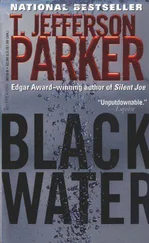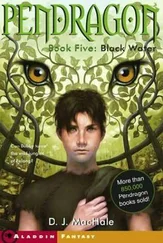He hadn’t been into a kampong since the coup and counter-coup. He crossed the rise of a precarious bridge made of bamboo and old planks, towards the slum where tumbledown shacks lined the bank, overhanging the water in places as if they might fall in at any minute. The cement wall of the river was broken in one place and a soil bank led down to the water, where women were washing clothes. Laundry was strung up everywhere around the shacks: an inside-out way of living, he always thought, in these tiny little houses, everything done communally — privacy just one in a long list of things denied the poor.
He strolled round a few squares of the kampong , nodding to the women sitting on steps with their children. In between the shacks and the dirt paths were small ditches intended to forestall the floodwater, with concrete slabs to allow people to cross into the shacks. The ditches were only half full now but as the daily downpours increased in intensity, the inhabitants would be first ankle-deep, then knee-deep in the brown water. A few people stared back at him, mildly, without hostility. Despite the city in ferment — the tortured Generals, the fear, the persistent tension in Merdeka Square and on the wide boulevards of central Jakarta, there seemed to be no changed atmosphere here. No one rose from a doorstep and went inside at his approach; people nodded and smiled.
A coup only happened to the people it happened to, that was what struck him then: that was what the likes of Johnson forgot. The grand events were Johnson’s whole world, and his, to a certain extent, and yet to the people here, those events were a mere backdrop against the perpetual problem of where to find rice that day, how to pay for it, where to put your belongings when the river rose.
At the end of his circuit, on his way back to the bridge, he came across a group of elderly people, milky-eyed and skeletal, who stretched out their hands but were either too weak to mutter entreaties or too pessimistic to think him worth the effort. He brushed past them. A man like him giving out coins would be the talk of the kampong . At the sound of calling and chattering behind him, he glanced back to see he had acquired a posse of small boys, jumping and smiling. He smiled back, shook his head. They followed him, nonetheless, until he reached the bridge. As he mounted it, he looked behind to see that they had stopped on the kampong side, as if the river was an invisible wall that they could not pass through, although they carried on jumping and smiling and calling.
On the other side of the bridge he was immediately in the area of middle-class bungalows where this Parno man lived. He was hot and thirsty now, regretting his walk around. He hoped Parno would serve something cold.
Only two minutes from the river, the streets were quiet. The bungalows were long and low with the same terracotta-tiled roof running the length of the blok . Parno’s building was at the end, tucked into a corner. As he approached it, he could hear the distant, hypnotic gongs of gamelan, fading — it was a sound that filled him with a strange calm. He must have heard it as a child, he thought. This had been a quirk of his few months on Java: new sights, new sounds, new smells, but so many of them tugged at something in him, some unconscious memory, or maybe he just felt as though they should.
As he pushed through a little wrought-iron gate and stepped into the courtyard, the door swung open. A young man in a beige shirt, a civil service clerk, possibly, stood behind it, head bowed. As Harper stepped over the threshold, the young man held out his hand for his hat.
He handed the young man the panama he wore when he wasn’t trying to ‘pass’, as Gregor would have put it, and turned to see that behind the door was a stuffed tiger fastened to a wooden plinth, a whole tiger, somewhat battered, in an unnatural position, sitting up with its teeth bared and glass eyes staring in the way that only glass eyes can, motionless but somehow not entirely inanimate.
‘Is there anything more sad than a stuffed tiger?’
Harper turned to see a light-skinned mixed-race woman in a Western cocktail dress, oiled black hair drawn back from carved features and gold drop earrings hanging from her earlobes.
‘All that power, now just sand inside,’ she said, and turned away from him. He followed her into the room to their left. As they entered she turned to him and said, ‘My husband is here,’ then went through a door on the other side of the room.
Pak Parno was seated behind a large desk wearing a batik shirt in purple and gold. He stayed seated as Harper walked towards the desk and gestured at his wife as she left the room. ‘My wife is very beautiful,’ he said casually. Harper watched Parno’s wife as she walked out of the room. From behind, she was as skinny as a garden rake; no arse to her at all. ‘She’s from a good family, too.’
This observation seemed to amuse him and he chuckled to himself, rose and came round to Harper’s side of the desk, extending his hand. He was as rotund as Harper had expected, although not as short. ‘A wife is a great blessing, Mr Harper, although I understand you are as yet unmarried.’ He smiled broadly.
Harper gave a small bow. ‘That is true.’
‘Perhaps you will find a nice Javanese wife.’
Parno gestured to a three-piece suite arranged Western-style. They seated themselves and Parno’s wife returned with a silver tray on which were two heavy crystal glasses and a carafe. When she had placed it on the coffee table, she poured for them both, then turned to the mantelpiece above the fireplace where there was a cigar box.
He knew this routine: whisky, cigars, a little manly talk. Parno was the kind of bureaucrat who prided himself on living a westernised lifestyle but a reasonably modest one — there would be no gold taps in the bathroom. It was his relative modesty that would allow him to do deals to the benefit of friends and relatives. You didn’t hand a man like Parno a briefcase full of cash; he would be insulted. You offered a job opportunity to his nephew. That way, he got to feel munificent, not corrupt. There were always ways of corrupting those who didn’t want to feel corrupt. In many ways, they were the easiest to corrupt of all.
‘So, Mr Harper,’ Parno said as they sipped their drinks. ‘What do you think? If it comes to a fight with Malaysia, what is your view?’ Parno had already done two things: let Harper know he knew some personal information about him and indicated that they would not be discussing recent events in Jakarta. He was sticking to a safe subject. Konfrontasi : the political classes here liked to discuss it in the same way the Brits discussed the weather, as a polite opener.
Harper’s view was that the sabre-rattling across the Malacca Strait would come to nothing. ‘I wouldn’t like to say. .’ he replied politely, raising his hands. ‘The British are famously stubborn. The only thing they really understand is when other people are stubborn to them in return.’
‘That is true, Mr Harper, very true.’
He let Parno lead the conversation but hoped that the point would soon come when he would move things forward, and eventually, Parno leaned towards him and lowered his voice, a little melodramatically Harper thought, and said, ‘So, how soon can your friends provide us with the list?’
He paused. He had learned a thing or two from Gregor. ‘The list is already prepared.’
Parno’s face gave nothing away. ‘How many, Mr Harper?’
‘Eight hundred. Individuals, not families.’ The Americans had been working on the lists of Communists and their sympathisers for years — eventually the names would run to thousands, from the top down. Aiding the provision of such a list would ensure Parno a secure position in the new regime. He imagined that however calm the man’s exterior, he must be quite excited. But then Parno surprised him.
Читать дальше












